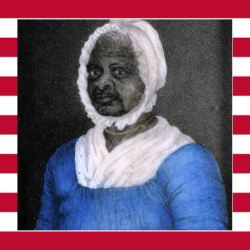
Elizabeth Freeman, better known as ‘Mumbett’ or ‘Bett’ was born a slave and remained as one for nearly thirty years before she successfully sued for her freedom. The 1781, Brom & Bett v. J. Ashley Esq., legal case was a defining moment in history that set a precedent for many enslaved African Americans who wished to sue for their freedom. This would ultimately lead to the abolition of slavery in the state of Massachusetts, and Bett played an undeniable part as a symbol of courage and hope for all who sought their own freedom.
This was further encouraged by the ideals of the American Revolution, as the discussions on liberty and rights created an opportunity for many slaves at the time to fight for their freedom on legal grounds from their masters. Having overheard a reading of the Massachusetts Constitution (1780) aloud, when she was a slave at John Ashley’s estate, Bett decided that now was time to sue for her freedom because, unlike previous public declarations like the Declaration of Independence, the Massachusetts Constitution was a legal document that advocated for the equality and freedom of all.
With the help of lawyer Theodore Sedgwick, a “writ of replevin” was filed with the Berkshire Court of Common Pleas in May of 1781. It ordered John Ashley to release Bett, and another slave, Brom, from his services. However, Ashley denied to do so and it was brought to the County Court of Common Pleas in Great Barrington as the legal case it is recognised as today.
The court ruled for the release of Bett and Brom, in addition to having assessed and awarded damages of thirty shillings to Bett and Brom as compensation for their labour. Following the conclusion of her case, Bett officially changed her name to Elizabeth Freeman, an ode to her new found freedom.
